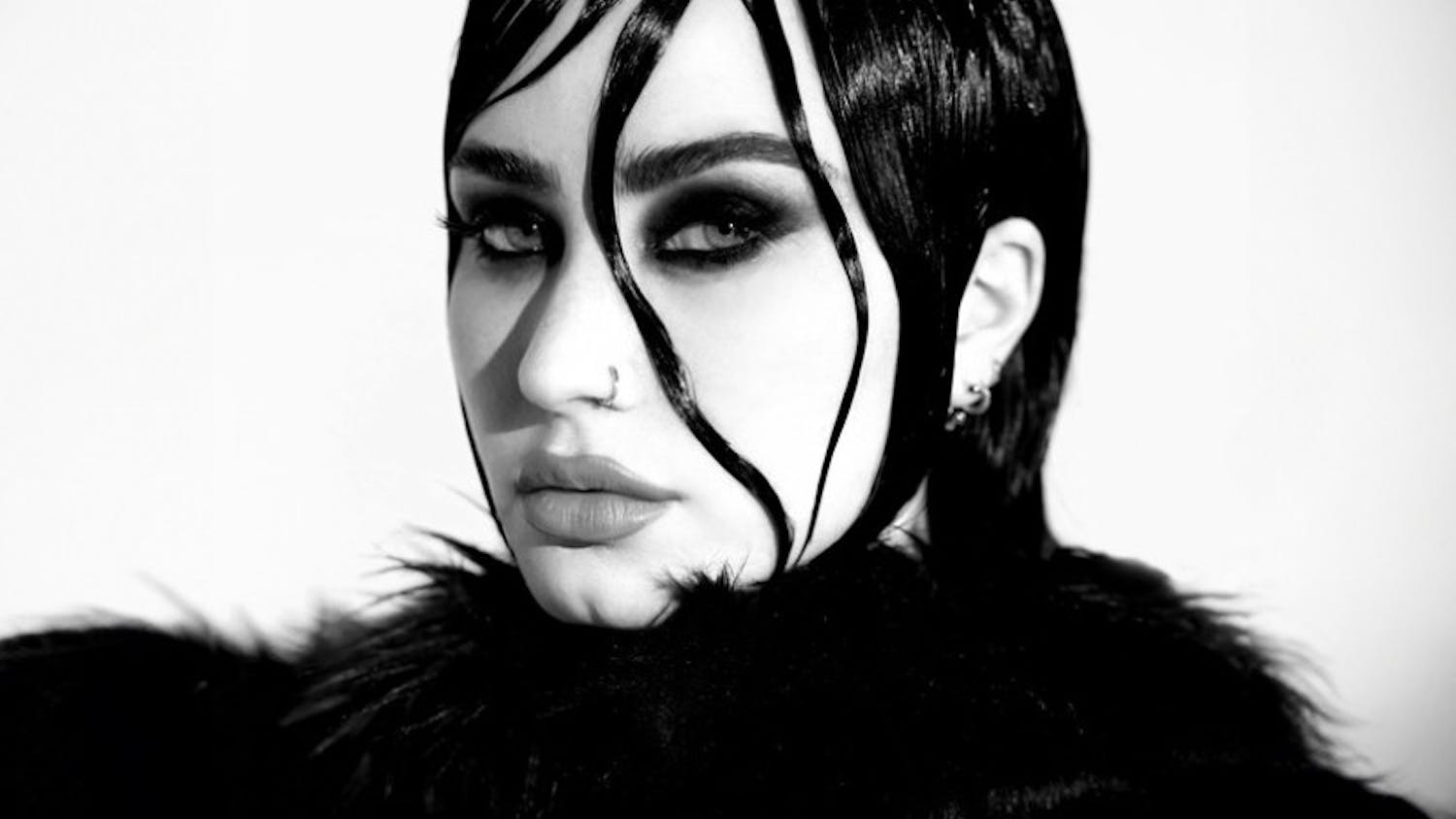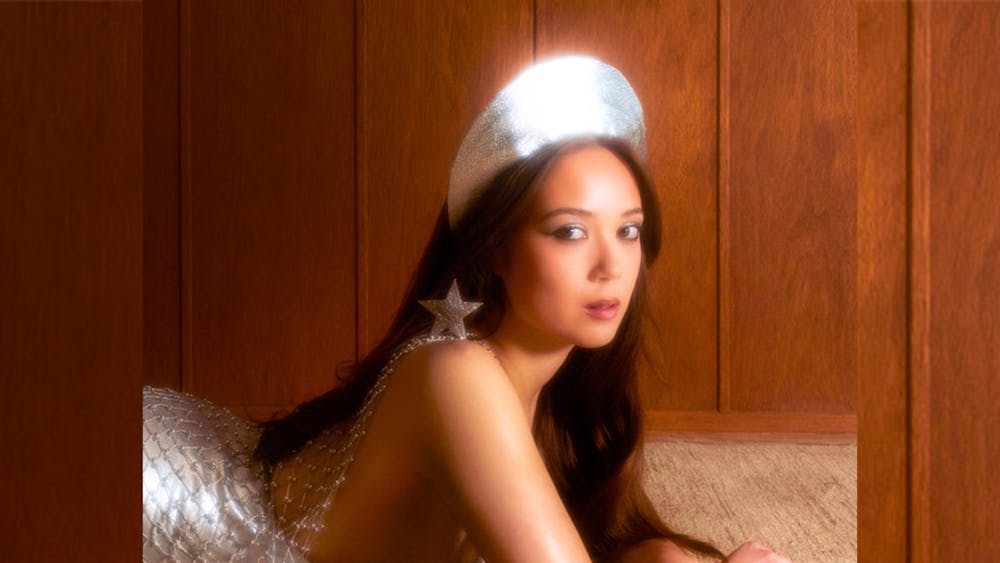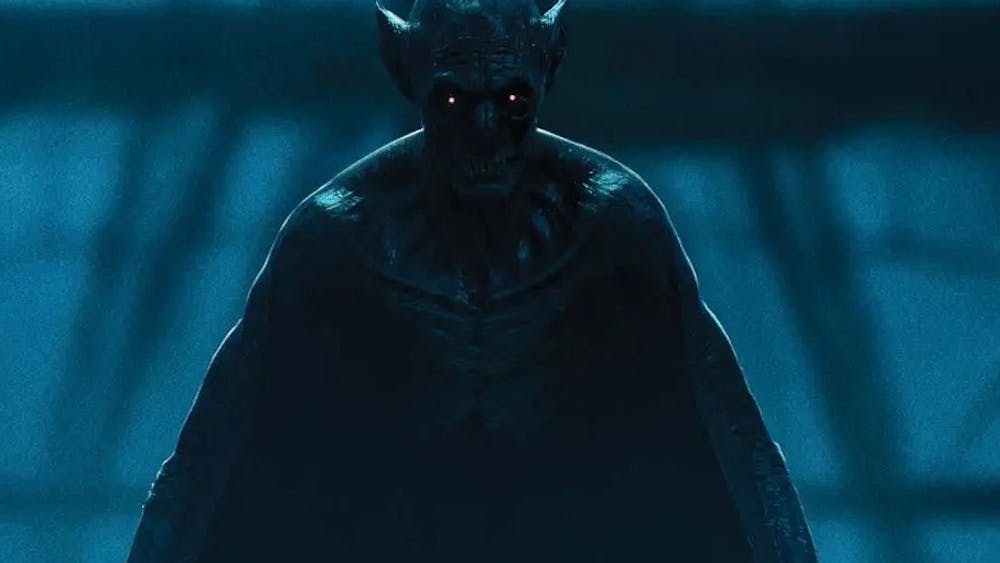Soprano Virginia LeBlanc emerged from the wing of Recital Hall in the IU School of Music. She walked humbly, with heels lightly clicking on the wooden floor, to the center of the stage, where she was accompanied by Brad Whiteley on piano performing four sections of the piece: "Fret Not," "Clean Hands," "Whom Shall I Fear" and "New Song."\nThe audience appeared to be drawn in by the purity of LeBlanc's voice and her poise, which slight, purposeful movements augmented. The singer and the audience swayed to the sound of her voice resonating in the room. The pieces were based on spiritual songs she sung in an opera style.\nThe piece featured long pauses during which the instrumental continued while Leblanc seemed to allow herself become taken over by the emotion of the piece, an especially celebrated facet of African-American performance.\nThere was an unexpected break in her performance.\n"My lord is my light, my salvation ... whom shall I fear," she said.\nShe then returned to singing, finishing her last piece with a high note that lingered about the room as she curtseyed and left the stage.\nSunday evening, Charles Sykes, director of the African American Arts Institute, welcomed a small yet fervent audience of African-American music aficionados to the 12th annual "Extensions of the Tradition" concert in the Recital Hall of the IU School of Music.\nThe evening's concert was part of the institute's 30th concert celebration and included solo and duet performances and a finale by the African American Choral Ensemble.\nAccording to the mission statement, "The name 'Extensions of the Tradition' refers to artistic expressions which are linked to a long history of African-American composers."\nThe "Extensions of the Tradition" annual concert series was founded by black composer William C. Banfield in 1988 at the University of Michigan. Since 1993, IU has presented the series as a partnership between the School of Music, the Institute and the Archives of African American Music.\nBanfield's work has been described as reminiscent of the music of earlier jazz musicians and composers like Thelonious Monk, Duke Ellington and Claude Debussy.\nHis "The Prophetess II" was presented first in this year's concert. \nFollowing LeBlanc in a premiere performance of a piece from David N. Baker's "Sonata for Flute and Piano" was graduate student Argarita Johnson on the flute, again accompanied by Whitely on piano. \nDuring Johnson's performance, there was a passage in which she made eye contact with the audience and then looked off into the distance.\nShe later accompanied tenor Carmund White in his performance of "Ghetto Suite," which was composed in 1975 by James E. Mumford, singer, musician, composer and director of the African American Choral Ensemble.\nThe concert also featured a less spiritually based piece with a performance of "Divertimento Caribeño No. 1," a piece originally composed for oboe and piano by Sonia Morales-Matos and performed by freshman Dana Booher on soprano saxophone. \nThis year's concert was dedicated to Coleridge-Taylor Perkinson, a pianist, composer and conductor who composed pieces for the Symphony of the New World, the Negro Ensemble Company, the Alvin Ailey dance company and Dance Theatre of Harlem, as well as for artists such Harry Belafonte and Marvin Gaye.\nPerkinson also composed television and film scores and served as the director of the IU Soul Revue from 1987-88. He died in March 2004.\nBailey's performance was amplified by the idiosyncratic positioning of his body, as well as by the movements in his face that changed along with the intensity of the music. \nThe last piece he played, "Gigue Rondo," was also full of brilliant trills skillfully articulated by Bailey and ended with a single sharp, high-pitched note.\nMumford and the African American Choral Ensemble took to the stage as narrators. Senior Amy Backes and senior Ryder Timberlake told the stories of Moses, Ghandi and Martin Luther King Jr. as they introduced the pieces they would be presented for the evening. \nOne section of the performance was the piece "Martin is Dead" in which the singers reacted to the news of King's death with open mourning.\nMumford prefaced the last piece of the evening, "Oh Lord Hear Our Prayer," with a request for the audience to take time during this last performance to reflect and pray about the problems of the modern-day world.\nWith the end of the piece, Sykes returned to bid the audience good evening and invite them to participate in the events that were part of the institute's 30th concert celebration.
Concert extends tradition another year
Get stories like this in your inbox
Subscribe





